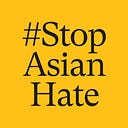Member-only story
Anna May Wong’s Legacy Is Coming Full Circle a Century Later
The first Asian American woman to star in Hollywood, she fought back against typecasting
Something Mel Guo, my research assistant, said a few newsletters ago has been replaying in my head. She wrote that discovering Anna May Wong was a kind of revelation that made her want to honor AMW’s “unfulfilled potential.” She echoed a yearning that I have long harbored: “I want to see the movies that Anna May Wong would have played, produced, and directed; the stories she would have told.”
Usually, when people learn the basic outline of AMW’s life, their first reaction is — “Oh, how tragic!” Her career undoubtedly suffered because of pervasive racism and sexism in Hollywood. This is most clearly evidenced by the roles she was typecast in over and over again. Something about being a sexually alluring Asian woman, whether the demure China doll or the wicked Dragon Lady, meant she was doomed to die (we saw this fetishization play out quite literally in Atlanta). In fact, a particular quote from one of her last interviews is oft-repeated, when she turned to the reporter and said wryly: “When I die, my epitaph should be: I died a thousand deaths. That was the story of my film career.”

